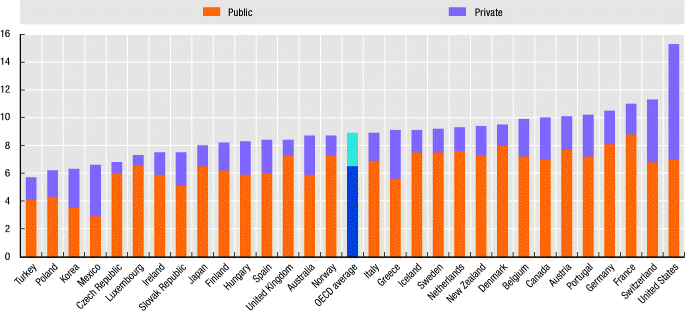Will America end up like Europe in defense spending?
Max Boot peers ahead into the dystopia that is modern Europe in the aftermath of President Obama's health care bill:
To consider the implications for defense, look at Europe. Last year government spending in the 27 European Union nations hit 52% of GDP. But most of them struggle to devote even 2% of GDP to defense, compared to more than 4% in the U.S.When Europeans after World War II chose to skimp on defense and spend lavishly on social welfare, they abdicated their claims to great power status. That worked out well for them because their security was subsidized by the U.S.
True, but it also worked out well for them because they had one main adversary and when that adversary collapsed, nothing on par rose to take its place. So modern Europe is relatively secure from conventional military threats, key members have a nuclear deterrent and it still has a serious, albeit small, conventional military capacity. But, as Boot notes, they don't have much in the way of sustained power projection:
But what happens if the U.S. switches spending from defense to social welfare? Who will protect what used to be known as the â??Free Worldâ?? Who will police the sea lanes, stop the proliferation of weapons of mass destruction, combat terrorism, respond to genocide and other unconscionable human rights violations, and deter rogue states from aggression? Those are all responsibilities currently performed by America. But it will be increasingly hard to be globocop and nanny state at the same time. Something will have to give.
Lucky for us, the free world is considerably safer now than it was when we were sustaining massive conventional and nuclear forces to fend off the Soviet Union. And none of the specific concerns Boot cites above seem either tremendously expensive to fulfill or are even necessarily in need of a military solution.
A lot of countries are currently policing sea lanes - including Europe! The U.S. can spend less on defense and still field a capable navy. When it comes to stopping WMD, how large a role is the military really playing here? It was the CIA and other allied intelligence services that uncovered and put a stop to the AQ Khan network. The military clearly has a somewhat larger role to play in stopping terrorism, but if you don't conflate "stopping terrorism" with "nation building" this isn't hugely expensive either. We don't do a large amount of "responding to genocide" in the first place. Rogue states like Iran and North Korea tend to be regional problems with a very limited ability to strike directly at the U.S., and even a decreased defense budget would more than enable us to respond to an act of aggression from third-rate powers.
Simply curtailing our huge investments in Iraq and Afghanistan and not expanding the Army would help save the U.S. billions in defense without precipitating a wholesale retreat from our role as a global military power.
UPDATE: See also Christopher Preble. And thinking about this a little more, I'm wondering what Boot's pitch is to the people who are now going to receive health care benefits - sorry, but it's more important that the U.S. protect Saudi Arabia from Iran? And I say this as somehow who is skeptical about saddling our government with more entitlement spending....
UPDATE II: Via Matthew Yglesias, the OECD figures for health care expenditures shows that the U.S. already outspends Europe by a fairly large margin on health care while maintaining the Empire. So even with "European-style" health care expenditures, there's still plenty of slack to spread freedom and battle evil should their leaders so choose:












